ONLINE MARKETING
Search Engine Optimisation
Want SEO Chester? We provide SEO to Chester based businesses and beyond. We carry out SEO to improve the page positioning of your website in the organic SEO search results.
A common misconception is that your SEO results are all about keywords. Whilst keywords are important, SEO involves a number of techniques that all work together to help improve a websites visibility.
Unlock the full potential of your online presence with our SEO services in Chester. We focus on enhancing your website’s visibility and search engine rankings, making it easier for potential customers to find you. Our team uses the latest SEO techniques, including keyword optimisation, content strategy, and backlink building, to improve your site’s relevance and authority.
Our approach is data-driven and results-oriented. We continuously monitor and analyse your website’s performance, adapting our strategies to the ever-changing algorithms of search engines. This proactive approach ensures your website remains at the forefront, driving traffic and increasing conversions.

Our SEO Results Speak For Themselves
We are an experienced SEO agency based in Chester, providing SEO services such as organic search engine optimisation (SEO), local SEO search and setting up and managing PPC campaigns to generate high quality traffic to our clients websites and improve their visibility in Google. Below is a snapshot of just some of the SEO results we have achieved as a result of carefully planned and implemented SEO strategies.



Local SEO
Local SEO is an effective method to market your products and services to customers in your local vicinity. Local search encompasses all of the search queries for your business that would suggest ‘local intent’ such as “Marketing near me” or “SEO Chester”.
When focusing on a key phrase such as “SEO Chester,” your local SEO strategy should form part of your wider SEO strategy and will be focused on content, directories, citations that are all geographically close and relevant to your business. This will help your business to get listed in the ‘Google 3 Pack’, this is the boxed area that appears on the first page for any localised search, it features 3 local business listings together with a map and includes helpful information like telephone numbers, opening times and reviews.
All of this information is pulled through from your “Google My Business” listing. Here you can add all of your company’s details, opening hours, products, reviews, social links and latest offers. Making sure your business listing is kept up-to-date and accurate with all the correct information is a great way to reach local customers.
If all this seems daunting or you simply haven’t the time to dedicate to a local SEO Chester strategy, we can help you, call us on 01244 323250 today for a free audit.
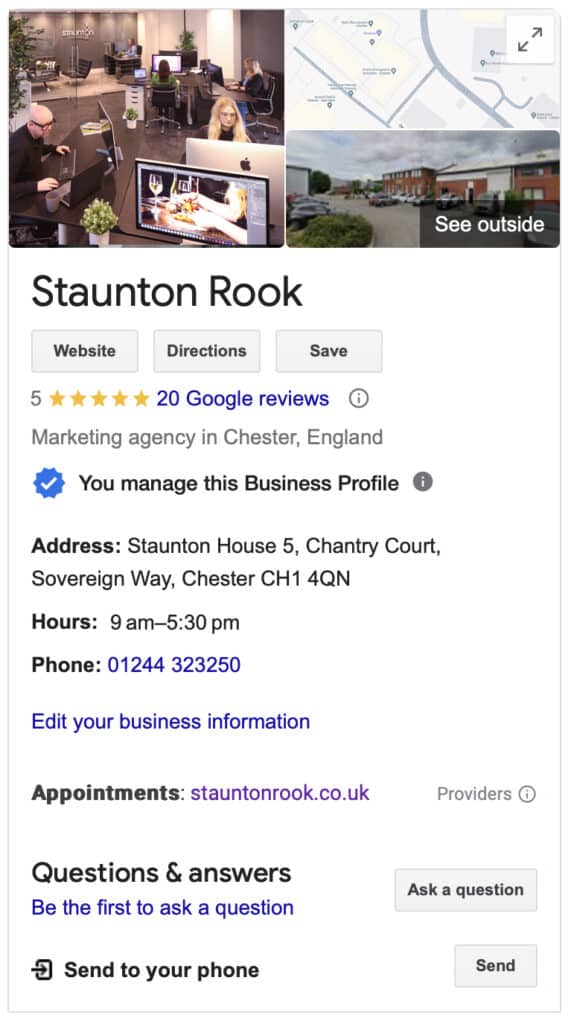
A Cohesive Approach to SEO
SEO is an ongoing process involving many different areas – in order to achieve success we believe in a well rounded cohesive approach covering the following elements.
- Brand exposure & improved brand recall
- Audience targeting
- Flexible budget
- Higher conversion rates
- Reduced loss of potential customers
- Reduced cost compared to CPC
Visitor visits your website and is tracked through the remarketing functionality.
Visitor completes their visit, this could involve minimal or advanced interaction and then leaves.
Visitor then goes on to visit other websites and your remarketing advert appears on certain sites.
Upon seeing your remarketing advert the visitor is enticed to return to your site.
We track and monitor your website with the latest technology

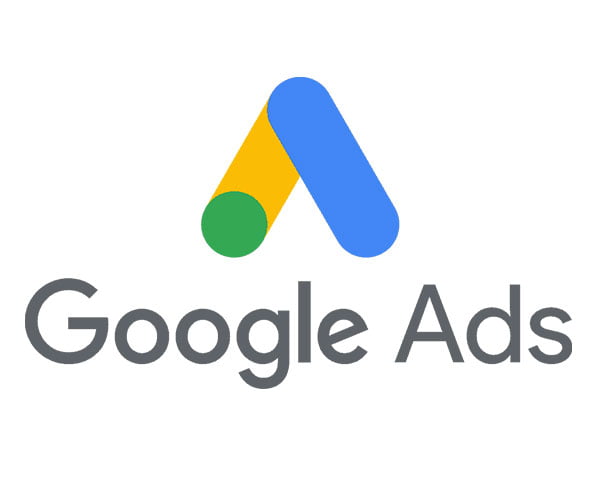


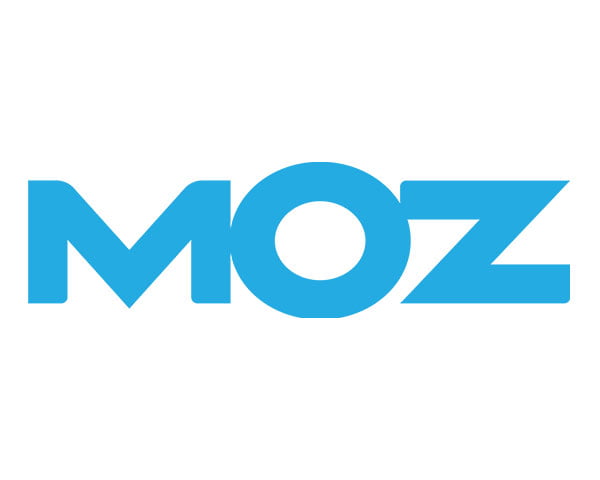
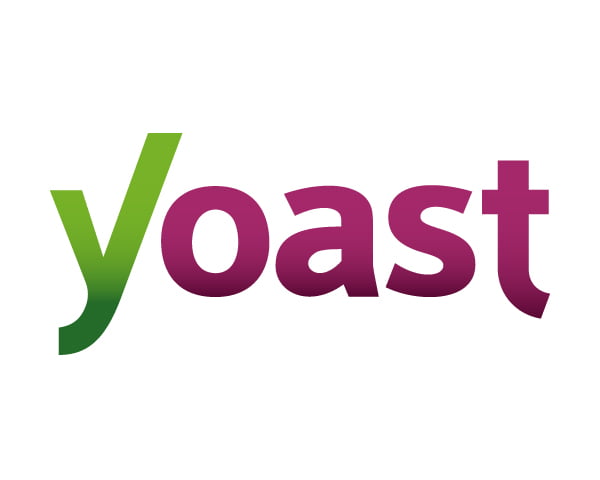
10 Tips To Help You Boost Your SEO Results!
We understand that optimising your website can be a daunting process. You want to perform in Google so that your target audience can easily find you but where do you begin? To help give you a head start we have compiled our top 10 SEO tips that we believe everyone should be following. If after reading you feel you would like a little more assistance feel free to get in touch – we will happily tailor a solution to suit your business and your budget.
1
Find the best keywords
Keyword research is one of the most valuable tasks you can complete when creating a website and should be done well in advance of the actual build. Ask yourself “what would my potential customers search to find my site?” and “will my chosen keywords bring the type of customer I want to my site?” Make yourself a list of 10 key phrases, this will help you to focus on writing quality content that is relevant to your search.
2
Research your competition
Take your 10 key phrases and spend some time on search engines finding out who you are competing with. How are they bringing in traffic to their site? Do they have active social media accounts? Do they have an active blog or news page? If you want to rank alongside them, you need to be doing as much as they do if not more.
3
Keyword rich, quality content
Google has stated that ‘content’ is among its top three ranking factors! It is essential to stand out from the rest of the internet crowd with great articles that will drive people to your site, remember to include plenty of your keywords to help the search engines find you but ensure to do this in a constructive way. But be careful, over using and littering an article with keywords known as ‘keyword stuffing’ and over optimisation will gain you no favour with Google and could actually result in your site being penalised.
4
Create internal linking
Internal linking is a key factor to your SEO strategy, it helps both the customer and search engines navigate your site – make sure you anchor keywords as part of your strategy and link out to other sites where relevant.
5
Page speed
Page speed is a measure of how fast your page loads, this is especially important when you are on the move, with more and more people now using phones and tablets to browse the internet whilst they are on the go you need to make sure potential customers aren’t left hanging. Make sure your site is responsive, optimise images, reduce calls to external files and improve your server response time.
6
Optimise your title and meta tags
Meta tags tell search engines lots of important information about your web pages, they are very influential in the way search engines catalogue your content and use this information to display in the SERPs. Make sure the meta tags on every page is unique and use keywords where relevant.
7
Optimise your headings and subheadings
Search engines need to know the hierarchy of the content on your page – you can do this by including some headings and subheadings. h1 tags are one of the most powerful elements in your SEO strategy, it tells the search engines what content is most important on your page, it should be big, strong and noticeable and clearly describe the content of the rest of the page.
8
Re-direct any duplicate content
Ensure you deal with any duplicate content on your site as it confuses search engines. If you have two pages with the same content the search engines won’t know which version of the webpage to rank for query results or which is more important, this will cause you to lose ranking factor. Make sure you set up 301 redirects where relevant to tell the search engines what to do, https to http, www to non-www pages. Whenever content on your site is on multiple URLS, they should be canonicalised.
9
Submit a sitemap
XML sitemaps are a handy tool for search engines to quickly crawl your website to see what pages are included in your website including some it may not have found. If you are adding pages regularly, make sure you keep it current, if you have a large site with lots of pages, consider using a dynamic sitemap.
10
Get backlinking!
Backlinks are links that come into your website from external websites, search engines see them as important because they represent a “pat on the back” from another website. All backlinks are not created equal, you will get more of a ranking boost if they are from relevant, popular and trustworthy websites.
Make Your Move - Get A Quote!
Get in touch with us to discuss how we can help.
We will only contact you in relation to the above enquiry, we promise never to pass your details on to 3rd parties and your information will be treated in accordance with our Privacy Policy.
Recent Work

Website Design
Countryside Caravans

Website Design
KCA People
Logo Design
Coco Property

Event Brochure
Flat Cap Hotels

Website Design
Minster WMS

Site Plan Design
Castle Green Homes
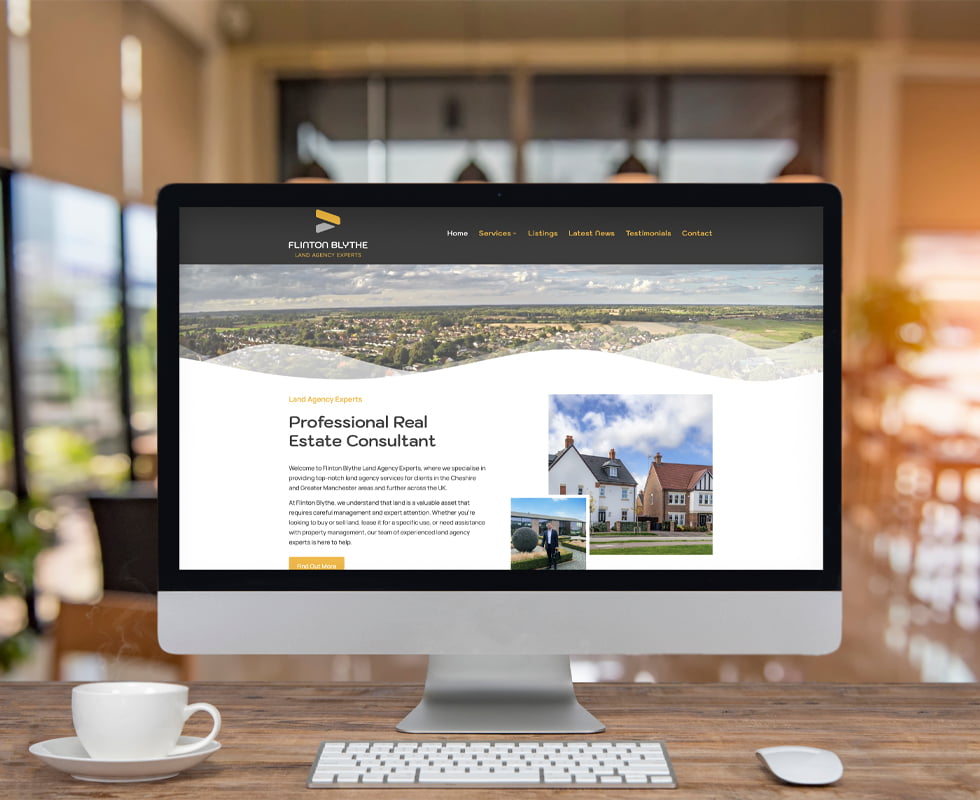
Website Design
Flinton Blythe

Brochure Design
Polar Coatings
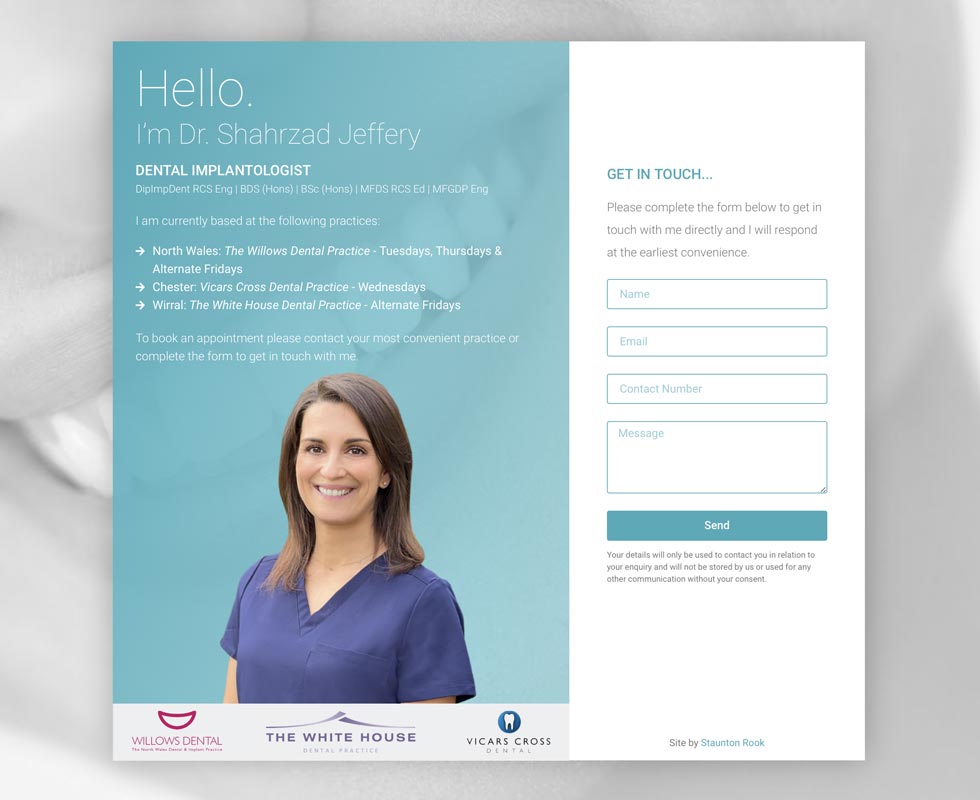
Brochure Design
Dental Implant Surgeon

Exhibition Design
Sweco

Packaging Design
Polar Coatings

Out Of Home Advertising
Seven Sins

Exhibition Design
Rotex Group
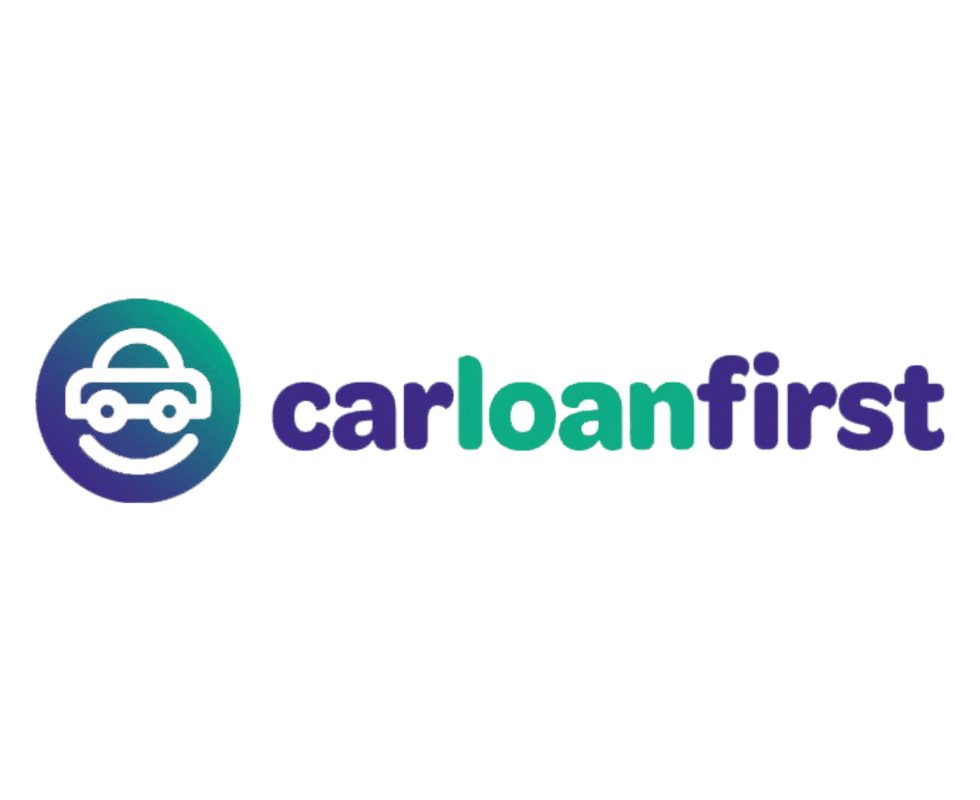
Logo Design
Car Loan First

Website Design
Seven Sins

Report & Accounts
Redrow Group
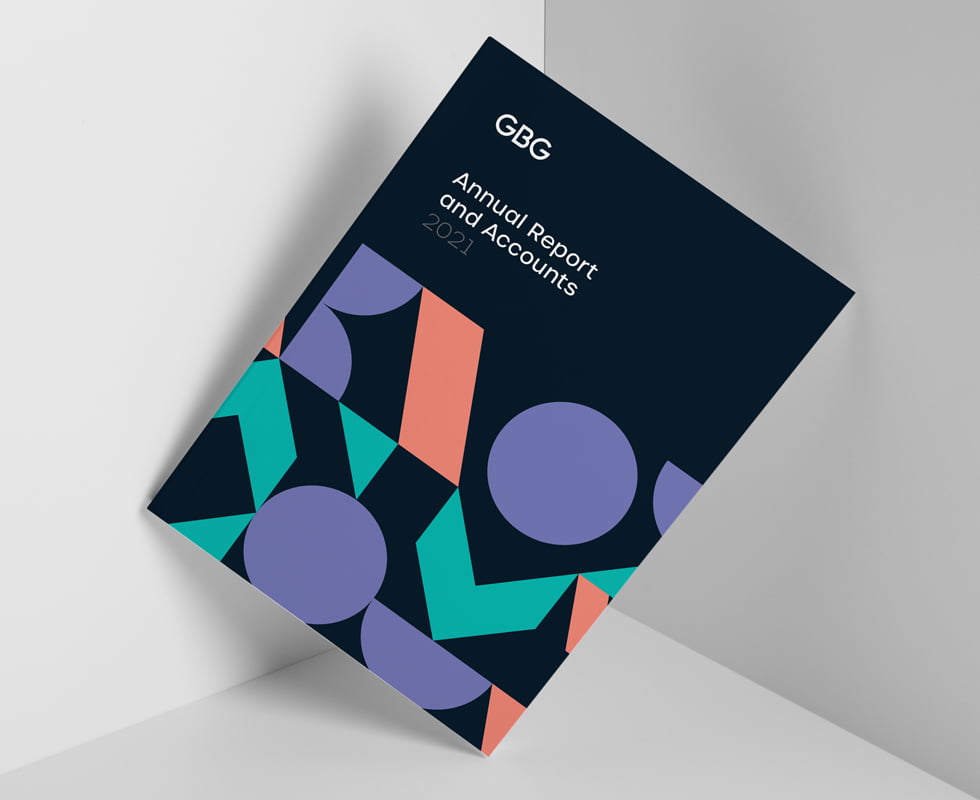
Report & Accounts
GBG Group

Logo Design
SeaVox

Interim Report Design
Redrow
Logo Design
BM&M

Website Design
Develop Capability

Report & Accounts
Redrow
Logo Design
Messe365

Signage Design
Redrow

Brochure Design
Redrow
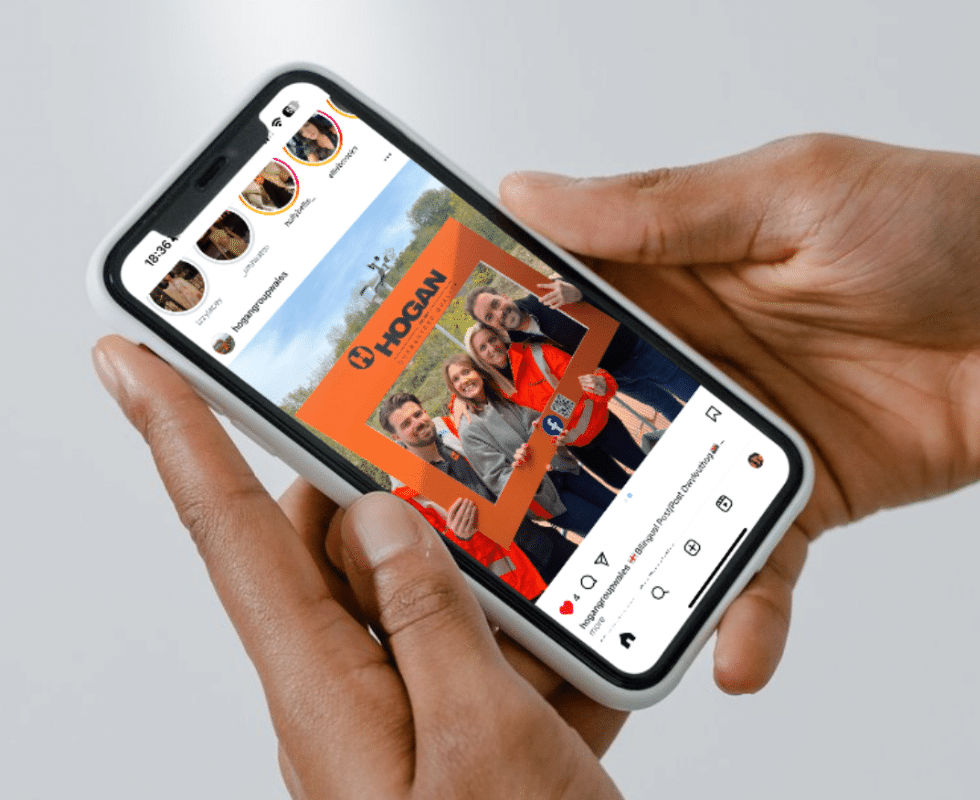
Social Media
Chrysalis Recruitment

Direct Mail
Redrow
Brand Identity
Simon Bennett

Event Banner
Redrow

Report & Accounts
Redrow

Corporate Literature
Parry & Evans

Brochure Design
Redrow
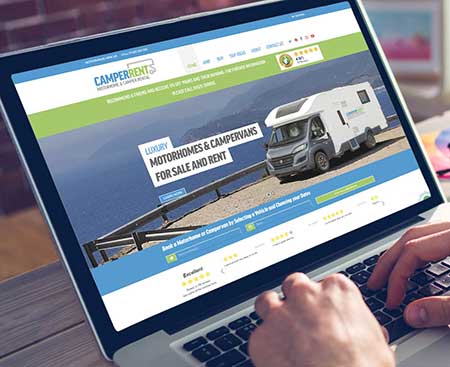
Website Design
Camper Rent UK

Website Design
Minera Roof Trusses
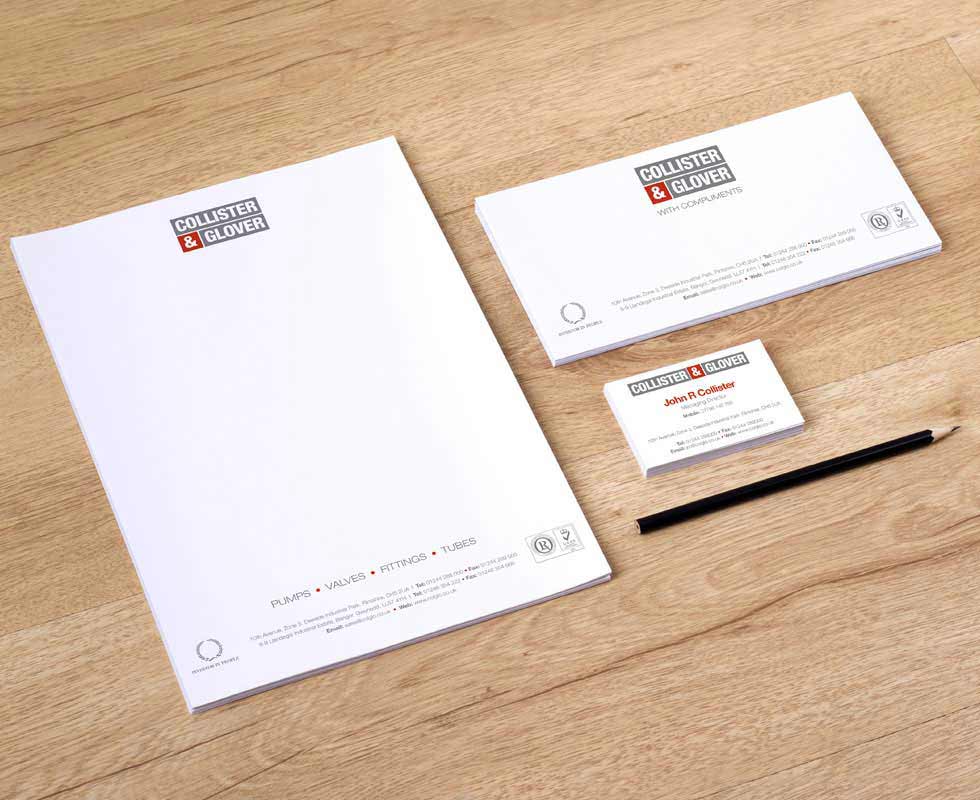
Brand Identity
Collister & Glover

Corporate Literature
S4YC Education